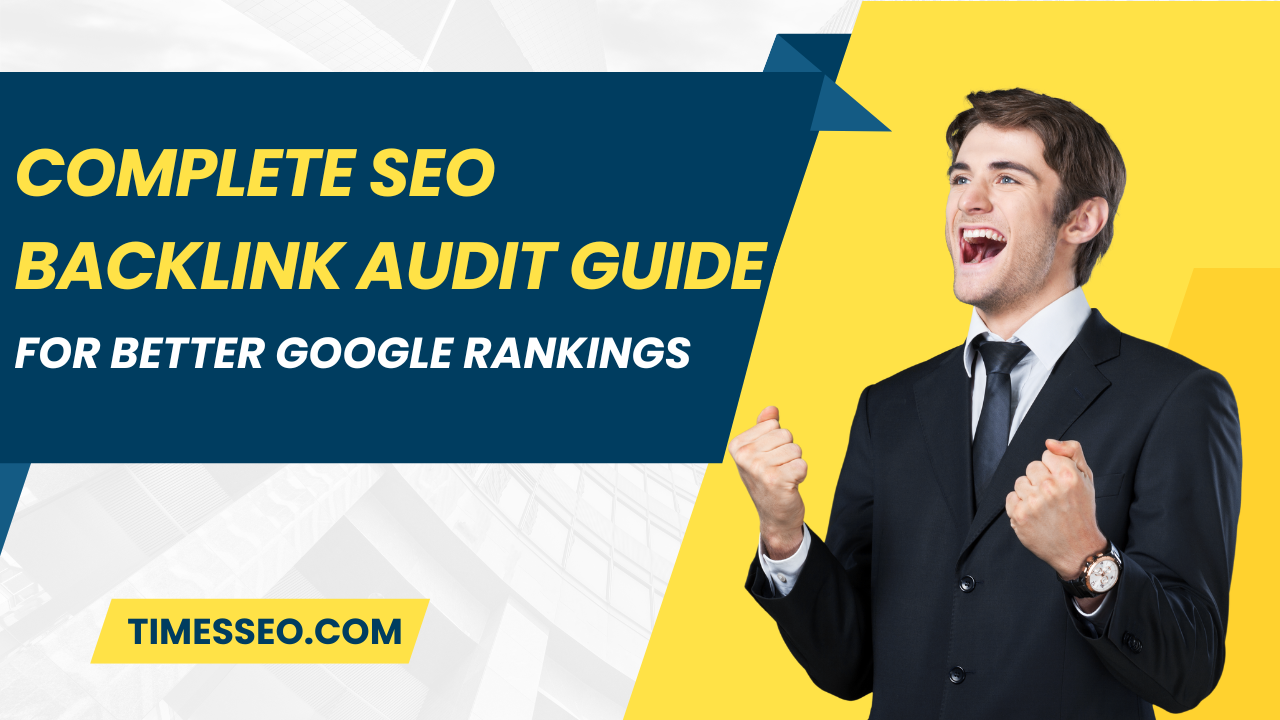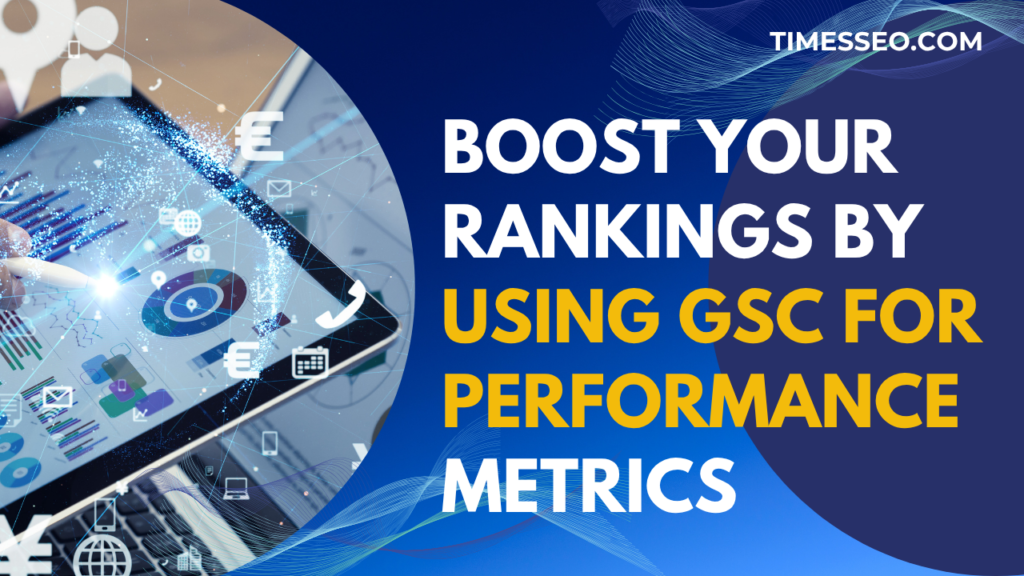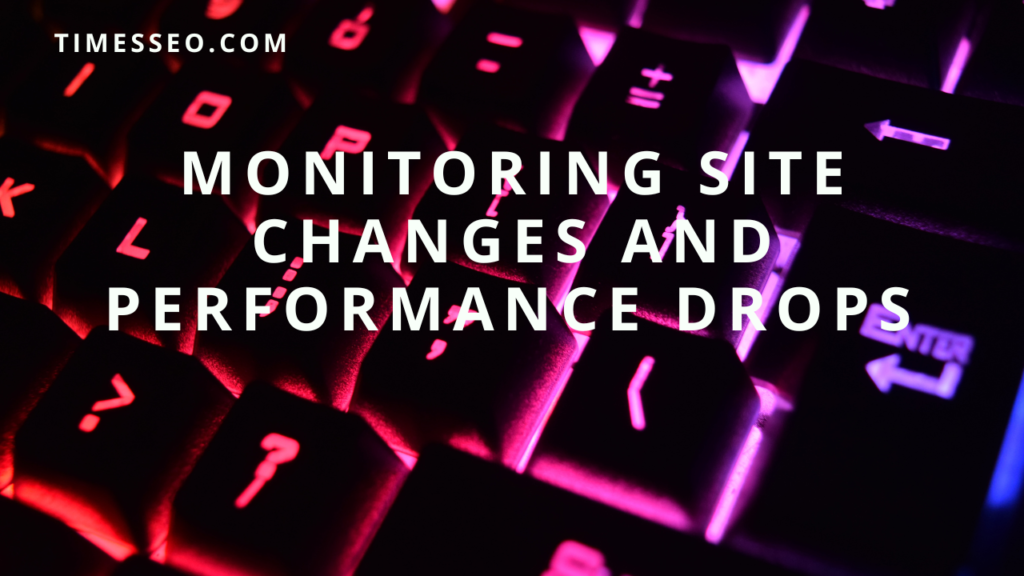
Boost Your Rankings by Using GSC for Performance Metrics
Learn how to improve your SEO results by using GSC for performance tracking. In the blog post “Boost Your Rankings by Using GSC for Performance Metrics,” we explore how to harness Google Search Console to analyze key data like clicks, impressions, CTR, and average position. From identifying high-performing keywords to fixing technical issues, this guide helps you make smarter, data-driven decisions using GSC for performance optimization. Perfect for marketers, SEO professionals, and website owners aiming for higher rankings.
Table of Contents
Introduction
What is Google Search Console?
Google Search Console (GSC) is your SEO dashboard from Google itself. It’s a free tool that lets you monitor, maintain, and troubleshoot your site’s presence in Google Search results. If SEO were a game, GSC would be your scoreboard.
Why Every SEO Professional Should Use GSC
If you’re not using GSC, you’re flying blind. It’s packed with insights on how your content is performing, what keywords are bringing in traffic, and where you’re falling short. Whether you’re managing a small blog or an enterprise-level site, GSC is essential.
Understanding Performance Metrics in GSC
Clicks, Impressions, CTR, and Average Position
These are the four pillars of performance:
- Clicks: The number of people who found your website through search results.
- Impressions: How often your page appeared in SERPs.
- CTR (Click-Through Rate): Clicks divided by impressions.
- Average Position: Your ranking in search results.
Understanding these helps you identify what’s working and what’s not.
Filtering by Pages, Queries, Devices, and Countries
One size doesn’t fit all. Use filters to:
- See which queries bring traffic
- Check performance by device (mobile vs. desktop)
- Analyze traffic from specific countries
- Evaluate each page individually
Keyword Performance Analysis
Identifying High-Performing Keywords
GSC tells you which keywords are driving clicks. Prioritize these in your content strategy. Consider creating more content around them or enhancing the pages already ranking.
Spotting Low-Hanging Fruit for Optimization
Identify keywords with high impressions but low CTR. These are goldmines waiting for a better title tag or meta description.
Page-Level Insights
Tracking Top Performing Pages
What’s bringing in the most search traffic? Identify and protect these pages. Update them regularly to maintain rankings.
Improving Underperforming Pages
Pages with high impressions but few clicks need love. Work on content clarity, internal linking, or updating outdated information.
Enhancing CTR with GSC Insights
Optimizing Meta Titles and Descriptions
Use GSC data to improve how your snippets appear in search. Make them more clickable by adding numbers, urgency, or solving a specific pain point.
A/B Testing Using SERP Data
Try out two variations of a title or description to compare results. Watch which one drives more clicks. Rinse and repeat.
Improving Technical SEO Using GSC
Mobile Usability Report
Check if your pages are mobile-friendly. With Google’s mobile-first indexing, this is crucial.
Core Web Vitals Insights
Speed matters. Use Core Web Vitals data to improve loading time, interactivity, and visual stability.
Fixing Indexing Issues
Are pages being indexed properly? GSC alerts you to pages with crawl errors, redirects, or noindex tags.
Leveraging GSC Data for Content Strategy
Finding Trending Topics Based on Queries
Use the queries report to discover what people are searching for. Then create content tailored to those queries.
Updating Old Content with New Keyword Data
Got an old blog post slipping down the rankings? Update it with new keywords from GSC and give it fresh life.
Monitoring Site Changes and Performance Drops
Comparing Date Ranges
To monitor progress or identify unexpected declines, compare performance from week to week or month to month.
Tracking Impact of Algorithm Updates
If your rankings tanked after a Google update, GSC helps confirm which pages or keywords were hit hardest.
Integrating GSC with Other Tools
Connecting GSC with Google Analytics
Bring behavioral insights together with search performance for a fuller picture.
Using GSC Data in Data Studio Dashboards
Create visual dashboards for reporting using Google Data Studio + GSC for easy-to-understand performance snapshots.
Creating Actionable SEO Reports from GSC
What to Include in a GSC-Based Report
Focus on:
- Top pages
- Top queries
- CTR trends
- Device distribution
- Fixes made and results observed
How to Present GSC Metrics to Clients
Translate the data into benefits:
- We updated the headline and boosted CTR by 20%.
- “This keyword jumped from position 12 to 4.”
Make it relatable and results-driven.
Pro Tips for Getting the Most Out of GSC
Setting Up Email Alerts
Let Google tell you when something’s off—like indexing issues or manual penalties.
Submitting Sitemaps and URL Inspections
Help Google crawl and index your pages faster by submitting sitemaps and using the URL inspection tool after publishing new content.
Common Mistakes to Avoid in GSC Usage
- Ignoring impression data
- Not fixing crawl or mobile errors
- Relying only on average position without context
- Failing to use filters to drill down by device or geography
Conclusion
Google Search Console is more than a reporting tool—it’s your SEO control center. Whether you’re fixing tech issues, tracking keyword performance, or guiding content creation, GSC is essential for anyone serious about SEO. Use it wisely, dig into the data, and watch your rankings grow.
Frequently Asked Questions
At least once a week. Daily if you're running a high-traffic or frequently updated site.
Identify pages with high impressions and low CTR, then optimize titles and meta descriptions.
Yes! Use the Performance tab and filter by "Queries" to see exact keywords.
It's a strong start, but pairing it with tools like Google Analytics and SEMrush gives a fuller picture.
It depends on crawl frequency, but typically within a few days to a couple of weeks.
Table of Contents
Popular Posts
-
 Affordable Technical SEO Audit for Small Business: A Complete Guide26 Jun 2025 Blog
Affordable Technical SEO Audit for Small Business: A Complete Guide26 Jun 2025 Blog -
 How to Get an Affordable Technical SEO Audit for Small Business27 Jun 2025 Blog
How to Get an Affordable Technical SEO Audit for Small Business27 Jun 2025 Blog -
 The Ultimate Local SEO Audit Checklist for Startups28 Jun 2025 Blog
The Ultimate Local SEO Audit Checklist for Startups28 Jun 2025 Blog -
 Local SEO Audit Checklist for Startups: A Beginner’s Guide28 Jun 2025 Blog
Local SEO Audit Checklist for Startups: A Beginner’s Guide28 Jun 2025 Blog -
 Top On-Page SEO Audit Steps for Service Websites Every Business Should Know29 Jun 2025 Blog
Top On-Page SEO Audit Steps for Service Websites Every Business Should Know29 Jun 2025 Blog -
 Technical SEO for WordPress: The Ultimate Beginner’s Guide01 Jul 2025 Blog
Technical SEO for WordPress: The Ultimate Beginner’s Guide01 Jul 2025 Blog -
 The Impact of On-Page SEO Audit Steps for Service Websites on UX01 Jul 2025 Blog
The Impact of On-Page SEO Audit Steps for Service Websites on UX01 Jul 2025 Blog -
 Technical Mobile SEO Audit Tips for Developers02 Jul 2025 Blog
Technical Mobile SEO Audit Tips for Developers02 Jul 2025 Blog -
 Complete SEO Backlink Audit Guide for Better Google Rankings03 Jul 2025 Blog
Complete SEO Backlink Audit Guide for Better Google Rankings03 Jul 2025 Blog -
 Boost Your Rankings with Technical SEO for WordPress01 Jul 2025 Blog
Boost Your Rankings with Technical SEO for WordPress01 Jul 2025 Blog






